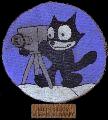Canoerebel
Posts: 21100
Joined: 12/14/2002
From: Northwestern Georgia, USA
Status: offline

|
Here is the text of another email to Erik. This is the second of three planned summarizes (the first is posted above). The third will discuss the one decision I regret, to some extent, plus the House Rules. But first, email number two:
Erik,
I’m enjoyed this back-and-forth emails. Thanks for indulging.
When we started the game, I made several important decisions that had outsized impacts on how the game developed, from my point of view.
First, I decided to honor your original House Rule requiring Chinese units to remain in China (unless PPs paid, but most units are permanent restricted). That meant sending them back into China. I knew they’d be useless there, in the Himalayas, without supply and the ability to upgrade. But it seemed important to do that from a sportsmanship standpoint, as opposed to building then and using them in Burma. It took awhile to get everything back home. Then they just had to sit. The few probing attacks I tried showed there was no way to get through your MLR. In effect, that took China out of the war until it could be relieved from the east, by the Western Allies.
For some reason (probably weariness, inattentiveness, laziness, etc.) my predecessor had all his Burma armies inland, on trails, poorly supplied, and not upgraded. The Brits and Indians and Americans had ’41 squads! I couldn’t get enough supply inland to upgrade, so those units had to come to the coast to do that. That took a lot of time and helped persuade me that I’d just bide my time until I could land in Malaya or Sumatra.
In the Pacific, Joseph had everything in the world centered in SWPac, around Rabaul, New Guinea, Luganville, etc. He had done a masterful job of concentrating every asset he had there. The problem was the you knew it, and you were prepared for an advance along that vector. Or, so I felt.
I needed some way to get at your economy, which mean striking quick at someplace like the DEI, the Philippines, Taiwan. Those places would permit interdiction. The other alternative was NoPac, where the Allies could begin Strat Bombing immediately.
Of course, you knew all of those possibilities and I knew you knew, and you knew that I knew you knew, ad infinitum. But I chose NoPac and hoped that overwhelming force might be sufficient. It turned out there was enough of a window to get ashore in strength, and then all heck broke loose and we fought like crazy for half a year. That was fun! Especially August, September, October, and November of ’44 – very tense.
But I soon discovered that I couldn’t compete in the air. My bomber and fighter pools were too thin to stand up under sustained campaigning. They got in a few early raids, but you quickly adjusted. Your flak and fighters made that a no-go.
By the end of ’44, I realized I had a problem. I had achieved my goal in NoPac….but now the Allied schwerpunkt was off in a corner, unable to effectively strat bomb, and unable to get my Burma folks into the game. That’s when I made the decision to land in China. Before I could do that, I needed to police the balance of the Kuriles, because I couldn’t take a chance on you counterattacking Sikhalin Island while I had all my ships around China.
You know how it developed form there – how I eventually elected to focus on China until it was re-taken, as opposed to landing at Honshu or Kyushu.
The right call? I’ll never know. But I gave it a lot of thought and felt like it offered a more sure route to 2:1 than did the alternative. The path I chose was less risky, more sure, but slower.
There was no way I could conceive of achieving victory prior to 9/1/45, under any circumstances. And if the Allies don’t make it by then, the next “victory level” remains good through 3/1/46. So the victory conditions were the same whether 2:1 came on, say, 10/5/45 or 2/19/46. That gave me the latitude to relax bit, get to work, and to see if you might “come out and play.”
I’ll write next time about the one major thing I did that didn’t feel right, while I was doing it and later.
Dan
|
 Printable Version
Printable Version























 New Messages
New Messages No New Messages
No New Messages Hot Topic w/ New Messages
Hot Topic w/ New Messages Hot Topic w/o New Messages
Hot Topic w/o New Messages Locked w/ New Messages
Locked w/ New Messages Locked w/o New Messages
Locked w/o New Messages Post New Thread
Post New Thread